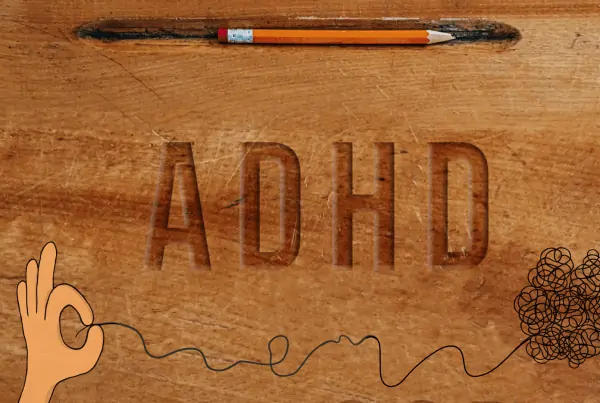Drug use in teens can affect their behavior, social abilities, cognitive skills, and in turn have long-term effects on their physical health, academic performance, and workspace opportunities. Recognizing and addressing potential teen drug use early on is important for securing a teen’s future and minimizing the risk of serious long-term consequences.
Teens are rebellious by nature, drawn to edge, and known for impulsivity and recklessness. It’s natural, then, that teens have a higher susceptibility to the dangers of addiction and addictive substances. This susceptibility is one of the reasons teens aren’t allowed to drink or smoke, and when they do, research tells us that they have a higher likelihood of struggling with substance use issues later in life.
Yet forbidding teens from doing something and effectively stopping them from doing something are entirely different missions. We know from extensive research that anti-drug campaigns aimed towards teens usually fail – and some of them even backfire, seemingly advertising the punk nature of drug use among teens that are naturally drawn towards anti-authoritative action.
We also know that educating teens instead, through no-nonsense facts on the debilitating long-term effects of drug use, can help them make an informed decision, should they decide to experiment with drugs anyway. To a degree, this approach even works best.
But what do you do if your teen starts using drugs regularly? How could you tell early enough to make a meaningful difference, and keep them from becoming addicted for years to come? Let’s explore the warning signs.
Physical Symptoms of Teen Drug Addiction
Drug use affects the body in different ways. Some drugs accelerate weight loss rapidly by cutting down on a growing teen’s appetite, resulting in an unhealthily low bodyweight, as well as other signs of low food intake, such as fainting or lack of menstruation.
Other drugs attack the organs quickly, resulting in a compromised immune system, frequent infections, and signs of illness. Drugs taken intravenously may result in a higher risk of infected needle marks, or diseases associated with needle reuse, such as hepatitis. The behavioral effects of drug use also affect teens physically due to lack of sleep and poor hygiene.
Behavioral Symptoms of Teen Addiction
The behavioral impact of frequent drug use is dependent on the type of drugs taken. The most commonly abused drugs among teenagers include alcohol and marijuana. Both drugs can have a depressant effect on teens, and temporarily affect a teen’s cognitive faculties, slow their reflexes, and reduce their coordination.
Regular binge drinking can cause mood swings and increased anxiety in sober or hungover teens, as well as memory loss and forgetfulness. Excessive marijuana usage, on the other hand, can trigger psychotic episodes (hallucinations or dissociation), loss of motivation, and lowered reasoning skills/problem solving abilities.
Stimulating drugs, such as methamphetamine, prescription stimulants, and cocaine may cause manic episodes instead.
Aside from mood swings and changes in behavior based on drug use, addiction can cause teens to resort to desperate acts of lying to try and hide their drug use (often unsuccessfully, at a certain point of inebriation) or try and find ways to come up with money quickly, such as stealing from family funds. Continued drug use and addiction often results in social withdrawal and isolation among teens.
Academic and Social Implications
The signs of teen drug use in school performance often mirror other mental health crises. Teens who struggle with drug use will have a hard time concentrating on school or prioritizing their studies.
They may lose interest in trying to complete school, skip out on extracurricular activities, and become worse at hiding their drug use. In addition to a risk of expulsion or legal consequences, drug use also correlates with extreme personal risk-taking – including life-threatening activities such as drunk driving.
Intervention and Treatment Options for Teenage Drug Use
If you suspect that your teen is hiding their drug use, or has been struggling with addiction for some time, it’s important to talk to them about exploring treatment options together. If that hasn’t worked, consider reaching out to a mental health professional for an individualized intervention.
Treatment for addiction relies heavily on therapy and removing addictive elements from a teen’s environment. In the case of outpatient treatment, teens continue to stay at home and go to school while regularly going to therapy.
Residential treatment allows teens to remove themselves from their current environment and focus solely on recovery in a specialized home environment alongside other teens in treatment. Both options also focus on building healthier habits and coping mechanisms into a teen’s daily life, improving a teen’s self-esteem and social skills through group activities and personal hobbies, and focusing on a daily schedule to keep teens focused on long-term recovery and their academic ambitions.
Prevention Strategies for Teen Addiction
They say prevention is better than a cure. So why do teens do drugs? The factors that inform teen drug use are numerous, but the most significant ones include availability and parental influence/family history.
- Availability plays a large role – the easier it is to acquire drugs, and the more prominent drug use is in your teen’s neighborhood, the higher the likelihood that they will come in contact with them.
- Parental influence is just as important and represents a double-edged sword – parents who are strict about establishing rules and consequences surrounding drug use, do not do drugs themselves (including smoking or drinking), and have a strong, healthy bond with their children will likely keep their teens from doing drugs. That last part is important – a positive parent-child bond is a strong protective factor against drug use.
- Last but certainly not least, there are other associated risk factors, such as a teen’s role and place within the community, their access to activities outside of drug use (such as gaming or sports), factors surrounding victimization (such as racism or being part of the LGBTQIA+), and access to mental health resources.
Anti-drug campaigns may mean well, but there is not much evidence to suggest that they work as well as they should. To have the most impact on your teen’s opinions on drugs, it’s important to focus on the quality of their family life, their integration into the community, positive social life outside of school, and access to counseling and other mental health resources to deal with bullying or feelings of depression and anxiety.
We at Visions work hard to help teens deal with the mental and physical consequences of addiction, transition towards sobriety, and stay the course for long-term recovery. Our residential treatment programs offer individualized treatment modalities for teens with substance use disorders and co-occurring disorders. Give us a call to learn more about Visions and our team.









